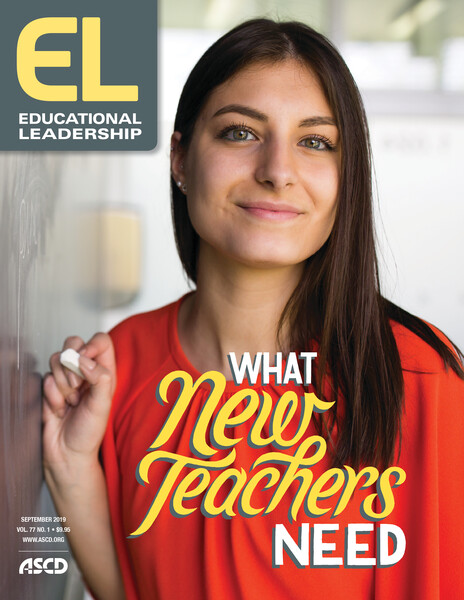Here you are, a first-year teacher, standing in your own classroom (or pushing your own cart). Maybe you've had all summer to plan, prep, and Pinterest. Maybe you just got your placement minutes ago and are reading this through hot tears of panic.
Either way, you've accomplished something significant. You've developed your résumé, skills, and passion to engage in the most necessary trade in society: Education. But though you may have overcome significant adversities to get here, the greatest challenges lie ahead—conflicts that will test your resolve and resilience.
The biggest challenge of your teaching career will be staving off burnout. And your students probably won't be the main contributors to your burnout. Adult negativity. Societal pressures. Diminished resources. Debilitating legislation. The dichotomy of over-involved and under-involved parenting. These are the rains that will threaten to extinguish your flame.
You may already be experiencing some of this as people question your decision to teach and advise you to look elsewhere. Your newsfeed may be bristling with caustic stories about educator despair. But beneath the dust clouds of discontent, there are millions of educators who still love what they do. Our passion for teaching is no accident, nor are we freakish outliers. Thriving teachers know that conditions matter but that our actions matter most for preventing burnout.
It would be naive to think that conditions don't affect our passion for teaching. They do. But they don't define us. For example, according to a meta-analysis of well-being studies, researchers Kennon Sheldon and Sonja Lyubomirsky (2007) found that circumstances account for just 10 percent of the variance of individuals' well-being, compared with 40 percent coming from our daily actions (and the other 50 percent from genetics).
Over the last decade, I've come to rely on a few daily actions that keep my teaching passion alive. Some of these I learned from research in positive psychology. Others I learned the hard way, by initially doing the opposite. All of them stem from a core philosophy: My well-being, passion, and ability to thrive are within my control. Yours are, too. If you want to continue being a passionate teacher, practice these "Passion Stokers."
1. Find a Positive Network
Why is it that in every single school, there are both teachers who love their work and teachers who have grown bitter? These teachers often work with the same students, in the same conditions, for the same number of days each year.
One of the best things you can do as a new teacher is look for the colleagues in your building who still love what they do. Seek out the veterans who haven't grown embittered (trust me, we are there; but we probably don't hang around the teacher's lounge or go on tirades in staff meetings). Surround yourself with these people, learn from them, and ask them questions. When I feel drained, I grab a drink with colleagues or strike up a conversation with Darlene, a veteran teacher who still loves her job after 40 years. Who we spend time with is who we become. Choose wisely.
2. Curate the Good, Don't Hoard the Bad
Teaching is built around improvement: We build knowledge that students don't have. We recognize deficiencies in skill sets. We seek growth. To do this, we have to notice what isn't good enough, what's wrong, what's missing. And so we add to our natural human negativity biases and wire our minds to focus on problematic issues, thus eroding our well-being.
But here's a distinction: Passionate teachers don't ignore the problems of education, but we don't hoard them, either. We don't spend the scarce seconds of our days ruminating about past wrongs and rambling about current frustrations.
We are curators, not hoarders. We still notice and address the bad. But we only collect and strengthen memories worth keeping, like a struggling student succeeding or a comment from a kid that made us laugh. We choose to spend our time talking about what's going well and what growth we are seeing, no matter how meager. We rekindle the sense of moral purpose that led us into teaching. And we do this for good reason: Resilient individuals draw from positive emotions to overcome challenging experiences (Tugade & Fredrickson, 2004).
Want a specific action step? Go 24 hours without voicing a single complaint. If you lapse, start the clock over. Of course, addressing an injustice or speaking up for change is fair game as long as you're taking action rather than complaining. This challenge will not only reveal how well you curate positive emotions, but it will help you identify (and avoid) negative contexts that try to bring you down.
3. Forgive
Education requires us to hone in on what could be better. As a result, teachers may deal with frequent mismatches between high expectations and learners who are, well, still learning. Sometimes this builds resentment—a ruminating anger we hold onto when others don't act the way we want.
For years, I held onto resentment. I ruminated about students who were unkind to me and others. I stewed when a parent told me I was in the wrong profession because—wait for it—I gave her daughter homework. I lost sleep over passive-aggressive comments from colleagues who called me "golden boy" in a demeaning tone.
Resentment is the acid that erodes the container, and the container in this case was my well-being. Finally, I learned the value of forgiveness: reappraising my feelings toward a transgressor or transgression to reduce anger. I realized that the only person suffering from my resentment was me. So I worked on mental reframes, reminding myself that I can't control other people or the past. I took the time to write out what upset me and why—and then threw the paper away so I could move on.
Moreover, I learned to forgive myself, for my own mistakes, by practicing mindfulness meditation.
4. Own Your Present and Future
One of the most important shifts a new teacher can make is the move from idealism to realism. We assume that realism means resigning to complacency or crotchetiness. But the type of realism I'm referring to is the reality that we are ones most responsible for our well-being.
A major part of this shift is adopting an internal locus of control—an understanding that our conditions can be influenced by our actions. Multiple studies show that individuals who adopt an internal locus of control are more likely to use problem-solving strategies, experience less psychological strain at work, and have greater job satisfaction (Dijkstra, Beersma, & Evers, 2011; Judge & Bono, 2001). Teachers with an internal locus of control have better relationships with students, administrators, and parents and fewer discipline problems and conflicts (Parkay et al., 1988).
Thriving teachers catch themselves when they blame others or justify with excuses. Early in my career, my colleagues at the Quantum Learning Network showed me how to adopt an internal locus of control via three mental shifts:
Autonomy: What is within my control?
Thriving teachers reframe difficult situations to focus on our choices. For example, I can't control what happened to my students before my class, but I can control how I greet them at the door. I can't always control the curricula I teach, but I control my choice of strategies for helping students learn. Focusing on things beyond our control drains us. Focusing on what is within our control (which is often more than we think) empowers us.
Cognitive Flexibility: What are my options?
Thriving teachers are great at brainstorming. We generate multiple options for positive action rather than self-victimizing. For example, if your efforts to help a student engage with a text aren't working, do you give up? Or do you research five new strategies to try next week?
Ownership: What action am I going to take right now?
We don't settle for watercooler musings on how we wish our circumstances were better. We own our mistakes, then follow up with efforts to repair. We take action—whether it's asking for support or proposing a passion project. We do rather than stew.
5. Craft Your Calling
I recently read an article about a state teacher of the year who announced that he and his wife were leaving the United States to teach overseas. Many commenters focused on what this said about the downfall of American education. I focused on how this teacher was taking his passion into his own hands. He was doing what thriving teachers do: Making a change before he burned out.
One of the greatest factors of job satisfaction, engagement, and performance is what researchers call "job crafting"—the intentional choices workers make with their tasks, their relationships, and their perceptions (Wrzesniewski & Dutton, 2001). Engaged workers do three things to take ownership of their work and well-being:
Craft the Who: Change the amount and type of interactions with others.
We love people. But we don't always have to like all of them. It's okay to be strategic about relationships. Spend more time with the people who build you up and make teaching worthwhile. Or mentor a student.
I've also learned the value of minimizing certain interactions. I give my inner-introvert permission to eat lunch in my classroom while I decompress. I avoid the teacher's lounge and find excuses to quickly escape conversations before they turn into gripe sessions. If I can't bail on a negative conversation in a department meeting, I strategically change the topic or pose solution-oriented questions.
Craft the Why: Change how we view our purpose of work.
It's easy to lose sight of our purpose and get consumed by conversations over data, drama, and decisions that don't put kids first. Thriving teachers guard and revisit the "why" of teaching often. A couple ways to do this:
▪ Post your teaching thesis: Write out a succinct reason for why you teach. Put it somewhere you can see it often. Mine, for instance, is "Use education to help students cultivate purpose, perspective, and perseverance." My thesis is the lens that guides my interactions and reminds me why I do this work.
▪ Look beyond the moment: Reframe draining tasks to focus on service. How will this task help someone else? How will it allow your students and colleagues to have a better educational experience? Similarly, shift your perspective from the micro to the macro. We aren't just teaching students where to put a comma in a sentence. We are helping them understand the structure of language so they can better communicate. Our actions as teachers go far beyond the moment. Remember that.
Craft the What: Change the approach, scope, and type of task.
One of the most important actions I've taken to avoid burnout is to pursue passion projects. For example, I worked for years to build a positive psychology program in my high school. I volunteer to run after-school fitness and music clubs. I write and lead districtwide professional development workshops throughout the summer. At the same time, I say no to committees or tasks that drain me.
It is especially helpful, as a beginning teacher, to organize your time around your gifts and gaps. As a new teacher, I wasn't any good at organization. So when a student noted that my desk was messy, I enlisted him or her to help me clean it up. On the other hand, I thrived with one-on-one instruction. So I shifted my assessment strategies to do more conferencing with students. What are your gifts and how can you use them more? What are your gaps and how can you outsource those?
Passion in Action
Be proud that you are in a meaningful profession. But be prepared to fight every year—and every day—to keep your passion alive. Remember that the conditions of teaching matter, but your actions matter most.
I would wish you luck in your future, but I don't believe in luck, and you don't need it. All you need is the resolve to curate the good, to forgive, to own your future, and to embrace change. And maybe more dry erase markers.
Copyright © 2019 Chase Mielke







